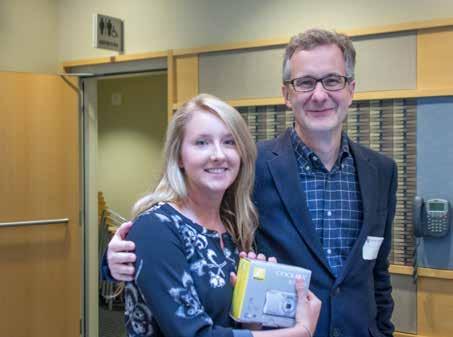
2 minute read
Symposium Review/Preview
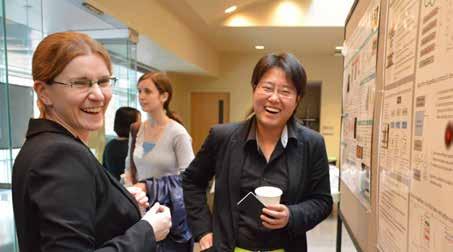
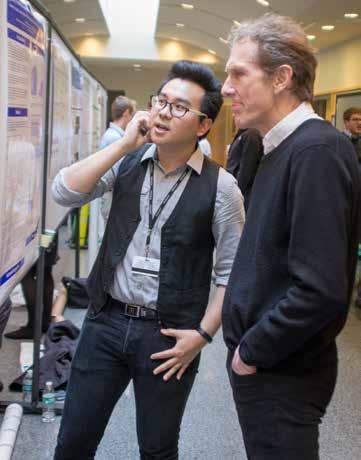
Advertisement
INBT’s annual symposium offers students a chance to showcase
their research during the afternoon poster session. Thought leaders who are experts on the selected topic enlighten attendees during the morning talks.
Photos by John French and Mary Spiro.
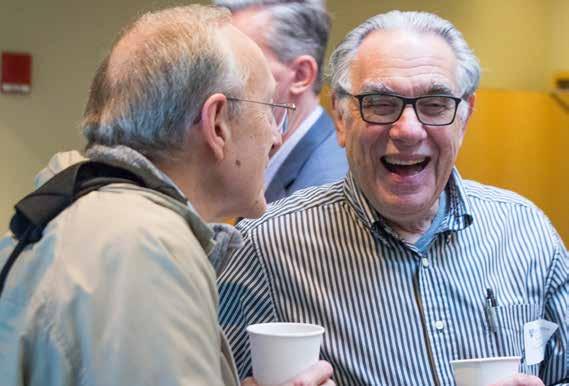
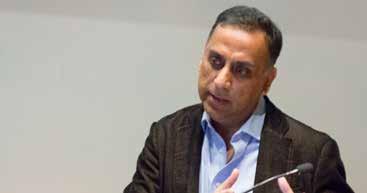
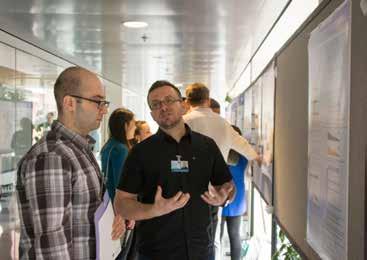
INBT’s 11th annual symposium— Engineering Vascularization— will be held Friday, May 5 at the Johns Hopkins School of Medicine. Symposium: Review and Preview
INBT’s 2016 symposium focused on Precision Medicine and was held April 29 at the School of Medicine. The annual event was co-hosted by Johns Hopkins Individualized Health Initiative (aka Hopkins inHealth) and featured several inHealth-affiliated speakers.
Treatments developed through the precision medicine approach aim to overcome the one-size-fits-all mindset of contemporary medicine. With therapies driven by data and through the synergized efforts of electronic medical records, public health investigations, clinical studies, and from records collected by patients themselves, patients should see more predictable outcomes. Speakers included Antony Rosen (medicine), Kenneth Pienta (urology), Zheyu Wang (biostatistics), Nilanjan Chatterjee (biostatistics), Andrew Feinberg (epigenetics), and Scott Zeger (biostatistics).
The theme for the 2017 Symposium will be Engineering Vascularization. It will be held May 5, 2017 in the Owens Auditorium at the Johns Hopkins School of Medicine. Speakers will include experts in vascularization who will approach the topic from several angles such as regeneration, oncology, and stem cells. Presenters will include David Cheresh from UCSD and David Kaplan from Tufts University. Other speakers to be announced.
Cheresh is a leading authority in angiogenesis - the growth of new blood vessels – from the Moores Cancer Center at University of California San Diego Health. He leads efforts to develop new collaborations and programs in clinical and basic science with an emphasis on translational medicine. He is the associate director of Innovation and Industry Alliances and the vice chair and a distinguished professor of the Department of Pathology.
Kaplan is the Stern Family Professor of Engineering at Tufts University. He is the chair of the Department of Biomedical Engineering and holds faculty appointments in the School of Medicine, the School of Dental Medicine, the Department of Chemistry, and the Department of Chemical and Biological Engineering. His research focuses on biopolymer engineering to understand structure-function relationships, with emphasis on studies related to self-assembly, biomaterials engineering, and functional tissue engineering/regenerative medicine.

